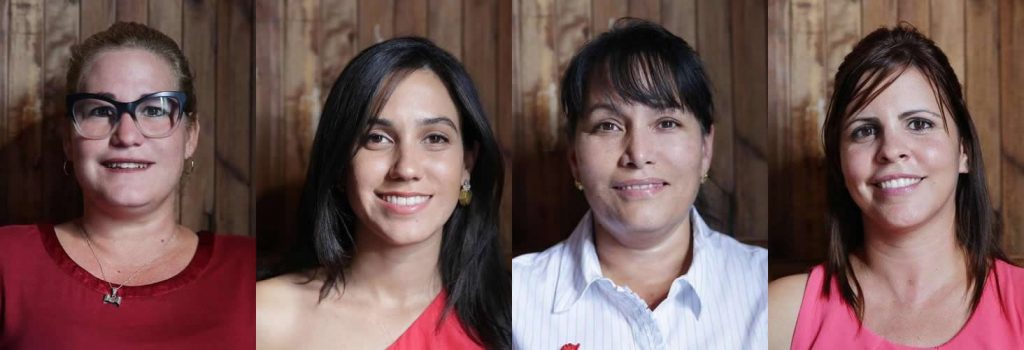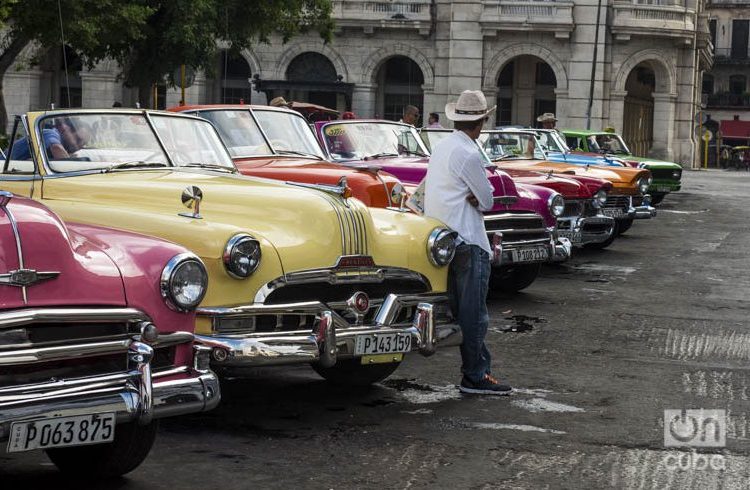A not so good year is coming to an end for Cuba compared to 2016, which was strident and promising: we came close on the list of successes. Havana was visited by Francis and Kiril, the Rolling Stones, Chanel, Fast and Furious, Madonna, Obama himself and an unprecedented legion of U.S. tourists who helped to pack hotels, private homes for rent, restaurants, and they led to the rebirth of flotillas of decked-out cars from 1950s.
Between 2015 and 2016 more than half a million persons, private workers, plus their families, were the immediate beneficiaries of an unusual movement of hard currency entering their pockets directly and in a spiraled way: the lessors who made their debut in Airbnb and were full during all the seasons; the taxi drivers who had more than enough tours of Havana or trips to Varadero and Trinidad; the gastronomics who multiplied breads and fishes with the help of the farmers who harvested them, or from the “traveler” – not legal – who brought supplies from Ecuador, Panama, Russia or Mexico; the hairdressers, the photographers, the computer science specialists who programmed an app; the organizer of parties who married Usher and the one who celebrated the sweet-15 parties for the barrio’s girls; the translators, producers, cameramen, dancers, actors, designers, who facilitated the premiere of video clips, movies, documentaries and feature articles about Cuba in so many newscasts, in so many international television chains, during the unforgettable 2016.
Many benefitted even when there was a lack of order, transparency, more legality and above all the Cuban authorities’ “good face” when allowing and also promoting that fiesta.
But 2017, on the other hand, has been very different. The big celebrities stayed at home. On June 16 President Trump and his consiglieri of Cuban origin, Senator Marco Rubio, once again pricked Liborio. His new measures, which have already taken effect, combined with an adventurous saga about “sonic attacks” which no one has demonstrated, froze everyone on the photo.
Everything has been rather difficult in the second half of the year.
By minimizing its embassy, suspending the granting of visas in Havana, issuing a warning about Cuba to discourage trips to the island by Americans, the U.S. government is again throwing “sinkers” against the Cubans; a Molotov cocktail that has left many in suspense.
To continue tarnishing the panorama, on August 1 the Cuban government locked down certain private work activities and without further notice promised a “perfecting” that still hasn’t appeared. Hundreds, perhaps thousands of Cubans were affected. Who doesn’t know of a family that had everything ready to start renting in Havana, for example, and was left in suspense, without money and wanting to also have a piece of the pie in a country that this year is going to receive more than 4.5 million visitors?
And as it is well-known, when it rains, it pours. On the night of September 10, category-4 Hurricane Irma affected almost completely the island’s northern coast. More poverty than before; many Cubans were left homeless, lost their belongings and didn’t have much hope.
Between September and December the sphere of the private economy in Cuba, in most of the activities, has given signs of entering into a sort of recession. Many aren’t doing well, or at least they’re not doing as well as when the normalization between the United States and Cuba was a possible horizon.
A new missive that Cuban businesswomen have addressed to public opinion and to the political operators of the south of Florida and of Washington mentions all this. They say it directly: “the new restrictions on trips are crushing the private sector.”
As businesswomen and head of our homes, we are sad about the turn of events that are causing suffering to so many of our friends, family members and colleagues. We are tired of hearing about “support for the Cuban people,” while those same policies are taking money from our pockets and food from our tables, and separate us from our families.
The new restrictions on trips are crushing the private sector. The restrictions on individual trips and those calling for a stricter application have confused and frightened visitors from the United States, many of which choose to go somewhere else or to cancel their plans to travel to Cuba. As a way of trampling us while we are depressed, an unfair travel warning by the Department of State and the partial closing of the U.S. Embassy in Havana have affected even more Americans’ trips and damaged our businesses.
The closing of consular services is dividing families, making reunification and family visas almost impossible. Hundreds of thousands of Cuban families are suffering, not knowing when they are going to meet again with their loved ones. It also makes it impossible for businesspeople to participate in workshops and training programs, U.S. student cultural tour groups and Cubans to obtain visas to study in the United States. The accompanying travel warning, which is completely unjustified, is scaring away U.S. visitors.
As a whole, the travel warning and the new restrictions have had a clear impact: the restaurants are empty, the occupancy rates have decreased, the events are being canceled and the independent guides and taxi drivers and others roam the streets searching for work. Many of us now have to decide which of our workers we will have to fire.
Unfortunately, despite the rhetoric of the U.S. policy about the support to the Cuban people and the support to the private sector, our reality is not taken into account and our wishes and hopes have gone unheard. Last year we went to Washington DC so that the legislators could hear our voices and analyze how a more open trade and travel policy helps private enterprises in Cuba. The country’s 100 most important private enterprises sent a letter to President Trump to present the case, believing he as a businessman would understand. A group of us, Cuban businesswomen, approached Ivanka Trump, the president’s aid, with the hope that she would understand the importance of empowering the women who are business leaders on the island. Our letters and requests to the administration for meetings once and again did not get a reply.
Marco Rubio, hear us out
This is how these women seem to tell the senator who on June 16 affirmed that “most of all, this change empowers the people of Cuba.”
We have repeatedly requested meetings with Rubio and his team to share our firsthand knowledge and experiences as businesspeople and community leaders in Cuba. Unfortunately, like the administration’s officials, he has ignored our requests to meet.
The legislators’ refusal to meet with us and, what’s most important, to take into account our aspirations and means of living, is a symbol of decades of U.S. policies that point to punishing the Cuban people because of their disapproval of the Cuban government. Not only is this way of thinking and acting inefficient and counterproductive, it is also cruel and causes real suffering to the persons to which it is supposedly trying to help.
We urge Rubio to stop trying to divide and separate our two countries; to stop promoting measures that damage families, businesspeople and average Cubans. We also request that the Department of State immediately lift the unjustified and politicized travel warning, that it completely open again the embassies and to clarify that the new and confusing regulations allow individual trips.
These women are denouncing that neither the rhetoric, nor finger pointing, nor increasing the restrictions are the type of “support” that the Cuban people want and need.
“What we want are fully functioning embassies and the freedom to travel for Americans and Cubans equally. We can take care of the rest.”










